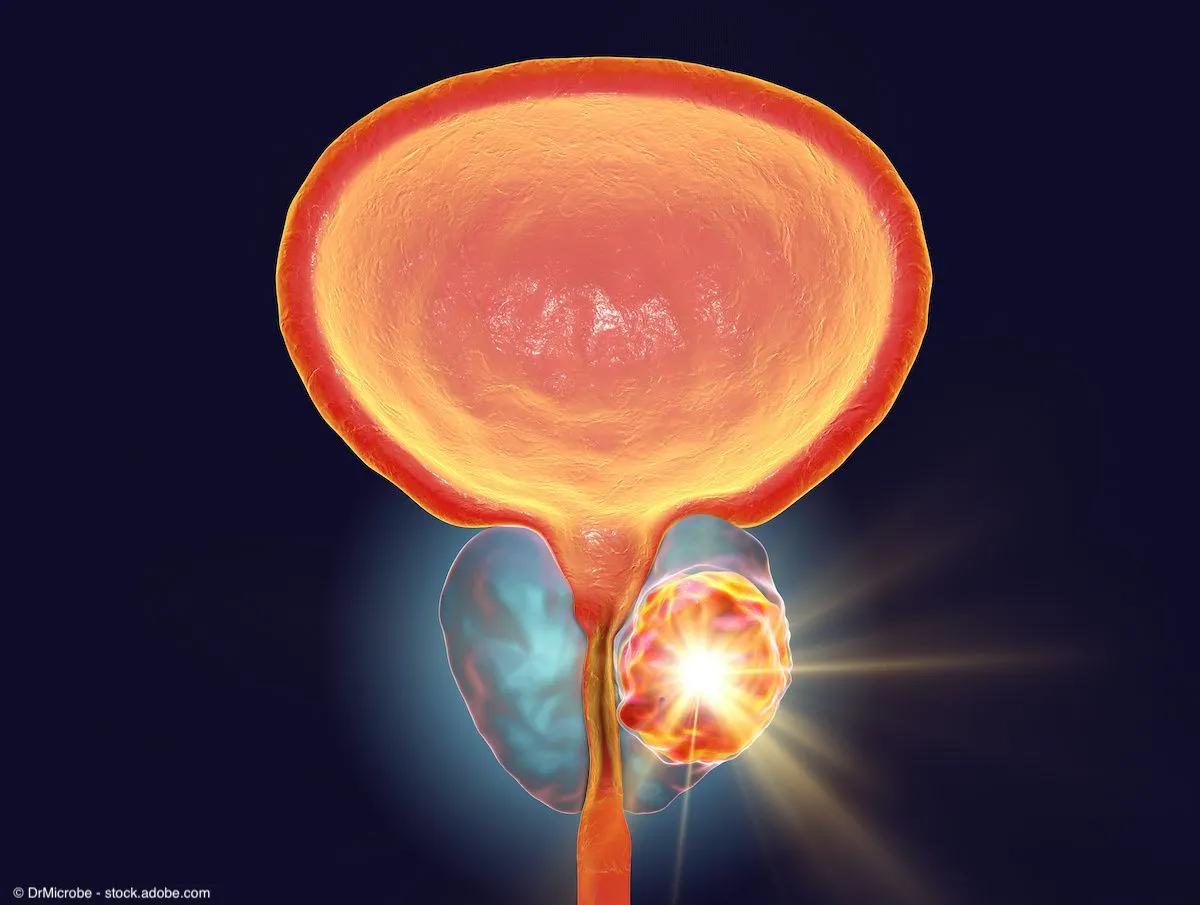NCCN awards funding to 4 advanced prostate cancer research projects
The research projects are assessing combination therapies in advanced prostate cancer that include the use of relugolix.
The National Comprehensive Cancer Network (NCCN)’s Oncology Research Program has granted funding to 4 research projects on combination therapies in advanced prostate cancer that include the use of relugolix (Orgovyx), the NCCN announced in a news release.1
"The aim of this project is to develop studies that will advance scientific knowledge regarding combination therapies that include relugolix in the treatment of patients with advanced prostate cancer," explained Crystal S. Denlinger, MD.

According to the release, the projects that have been awarded funding are as follows:
- Atish Choudhury, MD, PhD, Dana-Farber Cancer Institute
- Comeback from Long Course ADT with Relugolix and Darolutamide in Hormone-Sensitive Prostate Cancer (CLEARED)
- Comeback from Long Course ADT with Relugolix and Darolutamide in Hormone-Sensitive Prostate Cancer (CLEARED)
- Sagar Patel, MD, Winship Cancer Institute of Emory University
- Randomized Controlled Trial of Leuprolide plus Abiraterone Acetate (AA) versus Relugolix plus AA for Advanced Prostate Cancer
- Randomized Controlled Trial of Leuprolide plus Abiraterone Acetate (AA) versus Relugolix plus AA for Advanced Prostate Cancer
- Sean Sachdev, MD, Robert H. Lurie Comprehensive Cancer Center of Northwestern University
- Optimizing Treatment and Advanced Multi-imaging Response Evaluation for Very High-risk Prostate Cancer (OPTIMAL)
- Optimizing Treatment and Advanced Multi-imaging Response Evaluation for Very High-risk Prostate Cancer (OPTIMAL)
- Kelly Stratton, MD, OU Health Stephenson Cancer Center at the University of Oklahoma Health Sciences
- Phase IB Trial of Relugolix and Enzalutamide as Neoadjuvant/Adjuvant to Local-regional Treatment in Patients with High-risk Locally Advanced Prostate Cancer (NCT06130995)
All proposals were peer reviewed by a Scientific Review Committee consisting of oncologists from NCCN Member Institutions.
Approximately $3.5 million will be awarded across all projects. Funding will be provided with support from Pfizer Global Medical Grants and Sumitomo Pharma America (previously Myovant Sciences).
Each project is set to be completed within 5 years.
"The aim of this project is to develop studies that will advance scientific knowledge regarding combination therapies that include relugolix in the treatment of patients with advanced prostate cancer," explained Crystal S. Denlinger, MD, CEO of NCCN, in the news release.1 "Congratulations to these inspiring investigators. Their research will help us learn more about how to care for people with advanced prostate cancer."
Current data on relugolix
Relugolix is a GnHR antagonist that received FDA approval in 2020 for the treatment of adult patients with advanced prostate cancer. The approval of the therapy was based on data from the phase 3 HERO study (NCT03085095), which showed that 96.7% of patients randomized to relugolix maintained castration through 48 weeks, compared with 88.8% of patients receiving leuprolide (P < .001).2 The benefit with relugolix was sustained across all major secondary end points (P < .001).
Relugolix was also associated with a 54% lower risk of major adverse cardiovascular events compared with leuprolide (HR, 0.46).
Of note, relugolix did not improve castration resistance–free survival through 48 weeks vs leuprolide acetate in patients with metastatic prostate cancer.3 Overall, 74% of men who received relugolix were castration-resistance free through 48 weeks vs 75% of patients who received leuprolide (HR, 1.03; P = .84)
Overall, the open-label international phase 3 HERO trial included 930 patients treated across 155 clinical sites. Patients were randomly assigned 2:1 to relugolix 120 mg orally once daily or leuprolide injections every 3 months. Treatment was administered for 48 weeks, with a primary end point of sustained testosterone suppression to castrate levels (<50 ng/dL) through 48 weeks.
The incidence of adverse events (AEs) was similar across the study arms. In the relugolix group, all-grade AEs occurred in 92.9% of patients compared with 93.5% in the leuprolide arm. Grade 3/4 AEs occurred in 18% vs 20.5% of the 2 arms, respectively. There were 7 AE-related deaths in the relugolix cohort compared with 9 in the leuprolide arm.
References
1. NCCN announces funding for advanced prostate cancer research projects. News release. National comprehensive Cancer Network. November 21, 2023. Accessed November 22, 2023. https://www.prnewswire.com/news-releases/nccn-announces-funding-for-advanced-prostate-cancer-research-projects-301994785.html
2. Shore ND, Saad F, Cookson MS, et al. Oral relugolix for androgen-deprivation therapy in advanced prostate cancer. N Engl J Med. 2020;382(23):2187-2196. doi:10.1056/NEJMoa2004325.
3. Myovant Sciences announces results of additional secondary endpoint of castration resistance-free survival from phase 3 HERO study of relugolix in advanced prostate cancer. News release. Myovant. Published online September 29, 2020. Accessed November 22, 2023. https://www.myovant.com/news-releases/news-release-details-myovant-sciences-announces-results-additional-secondary-endpoint/
Dr. Agarwal on significance of ultra-low PSA levels achieved with apalutamide in mCSPC
January 11th 2024Neeraj Agarwal, MD, discusses an analysis from the phase 3 TITAN trial that explored the correlation between PSA response and survival among patients with metastatic castration-sensitive prostate cancer receiving apalutamide.
